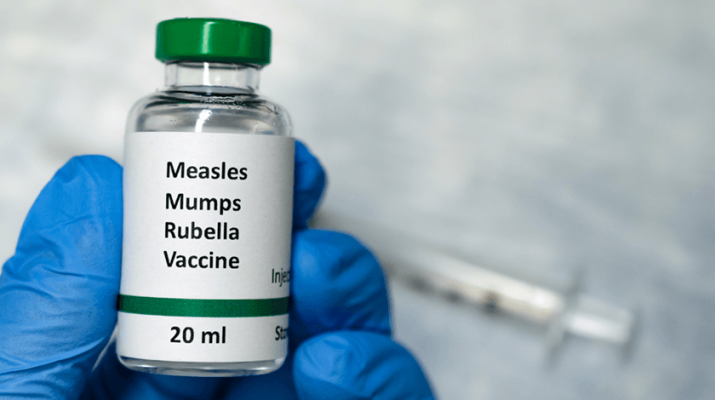By Ernst Lamothe Jr.

This was a banner year for measles and mumps. Not good news for health officials and various communities that were rocked by these two viruses.
The number of patients diagnosed with measles in the United States grew substantially with more than 900 confirmed cases in 23 states. Measles is an infectious viral disease causing fever and a red rash on the skin, typically occurring in childhood.
The United States is presently seeing the highest number of measles cases since the disease was considered eliminated in this country in the year 2000. Measles was reported in several states, including New York.
In addition, during the first six months of this year, 44 states and the District of Columbia in the U.S. reported mumps infections in 1,471 people, according to the Centers for Disease Control and Prevention.
“Obviously with the local outbreaks of measles and mumps this year, there has been an emphasis to make sure people are getting their shots up to date,” said physician Luis Castro, medical director of St. Joseph Primary Care Center West in Syracuse.
“We have to make sure we are keeping our children vaccinated because there are many essential shots that are needed and cannot be ignored.”
Castro talks about five vaccines that are important for infants, school-age kids and adults.
1. DTaP
DTaP vaccine can help protect children from diphtheria, tetanus, and pertussis. Diphtheria can cause breathing problems, paralysis, and heart failure. Before vaccines, diphtheria killed tens of thousands of children every year in the United States. Tetanus causes painful tightening of the muscles. It can cause locking of the jaw so patients cannot open their mouth or swallow. About one person out of five who get tetanus dies, according to the CDC. Pertussis, also known as whooping cough, causes coughing spells so bad that it is hard for infants and children to eat, drink or breathe. It can cause pneumonia, seizures, brain damage or death.
“Children receive several doses starting at 2 months and can receive up to five doses up to the age of 6 or 7,” said Castro.
2. Meningitis
The CDC recommends vaccination with a meningococcal conjugate vaccine for all preteens and teens at 11 to 12 years old. A booster dose is recommended at age 16 years. Castro mentioned there are several groups that should focus on making sure they have the vaccination shot.
“Meningitis is an illness that is very common in populations that are living together or in close environments like the military or college dorms,” said Castro. “It can spread very quickly and that is why vaccination is recommended.”
3. Hepatitis B
Hepatitis B is a liver disease caused by a virus. People who have acute hepatitis B may not have symptoms, but those who do may have fevers, upset stomach, feeling tired, pain in the muscles or jaundice. Others who suffer from chronic hepatitis B may have cirrhosis, which is scarring of the liver, liver cancer or even liver failure. This disease can spread by sharing drug needles, sex with someone who has it already, sharing razors or tooth brushes, and touching open sores. Hepatitis B vaccine is made from parts of the hepatitis B virus. It cannot cause hepatitis B infection. The vaccine is usually given as two, three or four shots during one to six month increments.
“This is a vaccine that we give in early stages of development for infants,” said Castro. “This is a common viral illness that can be transferred from mom to baby so we always want to make sure we are on the lookout for that.”
4. HPV
Human papillomavirus is a group of more than 150 viruses. Many people who get HPV have no symptoms. Some people who get HPV develop warts in their genital area. Some HPV infections do not go away and can cause cancer such as cervical cancer, cancer in or outside of the vagina, cancer of the penis, cancer of the anus or rectum and cancer of the throat. HPV spreads by intimate skin-to-skin contact.
“What a lot of people don’t know is that this is the only vaccine that can prevent cervical cancer and it is given as early as 11 years old,” said Castro. We try to get our pre-teens a cervical cancer vaccine singapore so they only need two doses.
5. Shingles
Shingles is a viral infection that causes a painful rash. Although shingles can occur anywhere on the body, it most often appears as a single stripe of blisters that wraps around either the left or the right side of your torso.
“We recommend getting one shot before the age of 65 and one after unless you have a chronic condition like asthma or COPD. Then you would get it every three years,” said Castro.

